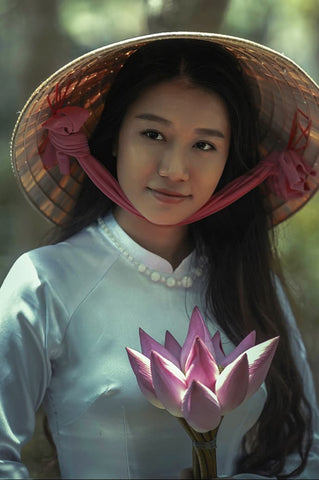Natural Tension Relief Solutions for Depression

The National Center for Biotechnology Information (NCBI) advances science and health by providing access to biomedical and genomic information. As defined by NCBI, Depression is a chronic condition, a common chronic mental health problem. “It is characterized by a loss of interest in daily activities and feelings of low self-worth, disappointment, sadness, and hopelessness. According to the Global Burden of Disease Study 2013, major depressive disorder (MDD) is the second-leading global cause of years lived with disability. The population-attributable risk for depression and all-cause death is 12.7%, and for depression and suicide it is 11.2%. The economic burden of individuals with MDD in the US increased by 21.5% between 2005 and 2010 (from $173.2 billion to $210.5 billion, inflation-adjusted).
Traditional Chinese Medicine (TCM)
TCM practitioners like Dr. Mark Xu in Memphis, TN, believe that physical health issues are connected to a person’s emotional state (and vice versa). Practitioners of TCM view emotions as an integrated aspect of organ functions, and sometimes the root cause of disease.
According to OneMedical.com, one TCM theory on anxiety is that “a person can have excessive energy, also referred to as heat or energy (qi), in the head. Symptoms of anxiety akin to this idea include insomnia, racing thoughts, and excessive worry. In such a case, the treatment would consist of inserting needles into various points on the body, such as the fingers, hands, wrists, ankles, and feet to redistribute the patient’s energy, in order to improve sleep and reduce worry.”
Depression, on the other hand, can be described as stagnant energy within the body. This stagnation can create imbalances that lead to symptoms of depression, such as an inability to focus, melancholy, anger, fatigue, and a lack of inspiration. “Acupuncture addresses the issue by enabling the energy to move more efficiently, balancing the organ systems and creating homeostasis. The idea is that creating balanced energy better equips a person to manage stress and steady emotions and enables a more peaceful feeling.”
Acupuncture and Herbs
Acupuncture and herbs are the most common Chinese medicine therapies for treating anxiety and depression. Acupuncture consists of stimulating points on the body through the skin with tiny, sterile needles. Chinese medicine practitioners may also prescribe herbs made of plant and mineral products.
As an example, Tuuwa product blends are based on scientific research. Tuuwa's Tension Relief Lotion for Him with Boost includes Corydalis Turtschaninovii Root Extract. This Root Extract, along with the tuber, has medicinal use for mild depression, emotional disturbances, nerve damage, limb tremors. It is also used as a mild sedative and tranquilizer, to lower blood pressure, and to relax spasms in the small intestine.
One of Dr. Xu’s clients said, “I went to him for depression. I was crying every day for close to a month.…When Dr. Xu said it was a lack of Qi and gave me some crazy tea I thought well, it makes sense so why the hell not?...despite my acceptance of TCM and internal stubbornness as a patient, the tea tastes like bark and it makes you feel better than just plain tea. I think depression is such an intimate and personal issue that addressing the whole of the being is a much more sensible approach. I truly appreciate Dr. Xu taking me seriously. He is very professional and thorough in his treatment. Thank you.”
Chinese Chess
NCBI says, “there is a relationship between Chinese herbal formulas and depressive disorders. The relationship can be likened to a game of chess. Sovereign herbs play the most significant role in the treatment of the principal syndrome, like the king and queen in chess. Ministerial herbs assist the sovereign herbs with the principal syndrome or the main accompanying syndrome, like the rook. Adjuvant herbs cooperate with sovereign and ministerial herbs to treat accompanying syndromes and can be represented by the bishop and the knight; they may also inhibit the toxicity of sovereign and ministerial herbs. Courier herbs guide drugs to illness stations like the pawn or coordinate the drug actions in a prescription. In the same way that all the chess pieces must be coordinated for the game to be won, all the herbs in antidepressant formulas act synergistically to treat depression.”
About Dr. Mark Xu
As a cornerstone of the Chinese medicine Memphis community, Dr. Mark Xu is a third generation licensed and certified Traditional Chinese Medicine (TCM) Herbalist and Acupuncturist. In his 30+ years of professional practice, he has utilized the traditional ways of Chinese Medicine to help thousands of patients and developed new and very effective protocols and formulas to enhance the quality of health in people's lives.

